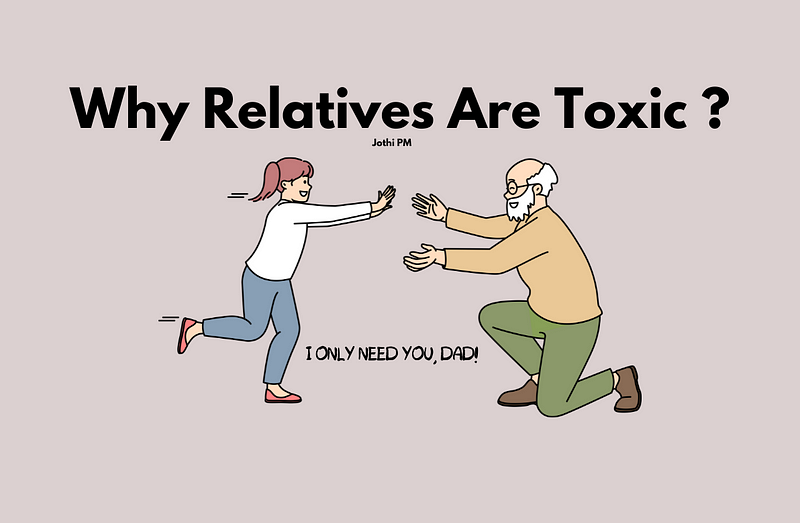# Understanding the Toxic Dynamics of Indian Family Relationships
Written on
Chapter 1: A Father's Generosity and Its Consequences
In our family, my father was often the favorite among relatives, frequently invited to family gatherings. Our home would come alive with the presence of cousins, aunts, and uncles during celebrations like Diwali. He was known for his generosity, spending a significant portion of his income on relatives' weddings and even contributing to building my aunt's house. Despite his earnings being below the average Indian salary, he frequently worked overtime to fulfill his desire to support our relatives financially.
Conversely, my mother took a different approach to finances. She was frugal, content with minimal possessions, and never wasted food. Each meal was carefully planned, and she only bought groceries as needed. Unlike my father, she didn’t prepare meals for guests in advance; she preferred to wait until they arrived. Her careful scrutiny of our expenditures often made her unpopular among relatives.
Fast forward 25 years, and I, his only child, chose to marry someone from a different caste. It pains me to even mention that term, which seems so arbitrary. My father eventually supported my decision after consulting with relatives, facilitating my marriage to the man I love. However, not all family members were pleased. They felt obliged to attend due to the financial support my father had given them over the years.
With my father's health declining, he could no longer work as hard or spend lavishly. Gradually, relatives began to skip our family events. When I hosted one such occasion, I invited around 50 people, but only 13 showed up. While I wasn't overly disappointed, my father felt deeply hurt. For the first time, he recognized that he had been taken advantage of; it was a painful realization that he had lost more than he gained.
Throughout the years, my mother had warned my father about his spending habits, cautioning him about the manipulative nature of some relatives who would turn their backs in times of need. However, he remained oblivious, believing he could maintain those relationships forever.
He acted out of love for me, thinking that after he and my mother were gone, our relatives would be there to support me. It saddened him to discover that he was mistaken. He also failed to see that I could stand on my own. Despite my efforts to reassure him—I pursued my education, managed my expenses, secured a job, and married without financial assistance from him—he still clung to the belief that relatives would provide the security we needed.
To me, he will always be my safe haven, far more than any relatives could ever be. If he ever asked, I would tell him, “Dad, I could be your haven for life!”
Thank you for reading! If you found this insightful, please show your appreciation. Follow me on Twitter. Disclaimer: My reflections focus on Indian family dynamics, as that is my personal experience.
Section 1.1: The Impact of Cultural Expectations
In many Indian families, there exists a cultural expectation to prioritize familial obligations above personal needs. This often leads to emotional strain, particularly for those like my father, who feel compelled to meet these demands at any cost.
Subsection 1.1.1: The Weight of Financial Support

Section 1.2: The Reality of Familial Relationships
As my father learned the hard way, the support he believed would be reciprocated was often one-sided. His realization came too late, revealing the harsh truth about the nature of some family ties.